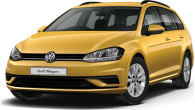Spending time on German roads involves out-of-this-world speeds and experiences that are totally alien – like sitting in a diesel Opel Zafira with six other adults as it cruises the autobahn at 180km/h, at night, and yet somehow doesn't blow up.
Or being at the wheel of the new BMW 1 Series, overtaking a police car at 210km/h, and having him do no more than smile and check out the car.
Besides these clues, Germany simply must be on a different planet because we all know that in this world, Speed Kills.
Yet I have been to this strange world, driven at double the speed I'm allowed to here, and I'm still alive.
To say that negotiating Germany's speed-limitless freeways takes some getting used to is like saying that waking up one morning to find yourself on the moon would be a tricky adjustment.
The first challenge is merging on to one of the race-pace autobahns from a slip road. You feel like Thomas the Tank Engine trying to pull out between bullet trains as the cars you're trying to dodge between approach you at more than 50 metres per second.
At the other end of the road, pulling off the freeway into a hairpin exit road poses its own challenges, due to the fact that your brain has become accustomed to speeds fast enough to put you in jail for the term of your natural life in Australia.
Approaching these bends three times as fast as was sensible gave us the opportunity to find out how the 1 Series handles at the very edge of sanity, and adhesion, and the good news is that it feels just like a proper, grown-up BMW.
When the idea of a mini BMW (that wasn't a Mini) was first mooted, fans of the brand blanched at the possibility of it being a disappointing, diluted Beemer, perhaps even with front-wheel drive.
But the bravura Bavarians were too clever for that, and by dropping it on the longest wheelbase in the compact class and severely scrimping on rear-seat room, they've managed to give the 1 Series the rear-wheel drive characteristics and sporty handling that define their prestigious brand.
Get off the autobahns and out into the country and you find that the shortest distance between two points doesn't particularly interest the Germans.
The average rural road has more twists, bends and turns than a yoga class and it's here that the 120i felt entirely at home, with its superb, supple steering, sharp chassis and class-leading brakes giving it that ultimate driving machine feel.
Of course there are some dangers in launching a car in Germany, unless it's a Porsche or a jet-powered sled, because one loses all sense of perspective. Thus one hears journalists saying things like: ¿Yeah, it's pretty good up to 200km/h, but its fairly sluggish from there on¿.
While this is a fair summary of the 120i's performance, one has to wonder how relevant it is to our market.
It's true that the 2.0-litre, four-cylinder engine, with 110kW and 200Nm of torque, can feel occasionally out of breath if you don't keep the revs up.
Generally, however, this Beemer is a pretty slick, quick customer for this end of the market with an 8.7 second time for the zero to 100km/h sprint although one does have to wonder though, how the 118i model, which arrives early next year, will tackle hills with its paltry 95kW.
And one can only hope they're not serious about adding the 116i, with its 85kW 1.6-litre engine, to the range.
At the other end of the scale, the 1 Series chassis feels like it's built to take a lot more power and you can bet your bottom Euro that a six-cylinder version is in the pipeline.
In Europe, you can already buy a more grunty 1: the 120kW 2.0-litre diesel 120d. It might not sound quite as smooth, but its 340Nm makes it the pick of the litter and it accelerates a hell of a lot harder up to, and beyond, 200km/h.
The extra urge comes in mighty handy if you ever want to inhabit the rarefied air of the fast lane on a German freeway.
On an autobahn, the average car speed is around 160km/h. Pull into the quick lane, however, and the speed accelerates to over 180km/h, with the odd car clocking 200km/h or even 250km/h plus.
As one local driver put it: "Doing over 200km/h is speeding really, not that there's anything wrong with that."
What makes all this perfectly sound is that Germans are brilliant drivers. And this is no fluke, because getting a licence in Germany involves a major investment of time and money.
Learner drivers must undergo at least 20 hours of driver training which includes driving at night, in the wet, on country roads and on autobahns.
The final test is tougher than writing Swahili without a pen. Fail, and you have to pay for more lessons.
The payoff is that German drivers are considerate and intelligent road users. They don't pull out in front of you, they don't overtake on the inside and they don't sit right on your butt. Tail-gating is a crime even though speeding is not.
With an entry-level price for the 118i of less than $40,000, and the 120i arriving in October for maybe $5000 more, owning a BMW will be cheaper than ever. Pity it's almost too good to drive in Australia.
BMW 120I 2004:
| Engine Type | Inline 4, 2.0L |
|---|---|
| Fuel Type | Unleaded Petrol |
| Fuel Efficiency | 7.4L/100km (combined) |
| Seating | 5 |
| Price From | $4,180 - $6,160 |
Range and Specs
| Vehicle | Specs | Price* |
|---|---|---|
| 120i Base | 2.0L, Unleaded Petrol, 6 SPEED AUTOMATIC | $4,290 - $6,380 |
| 120i Base | 2.0L, Unleaded Petrol, 6 SPEED MANUAL | $4,180 - $6,160 |
















































